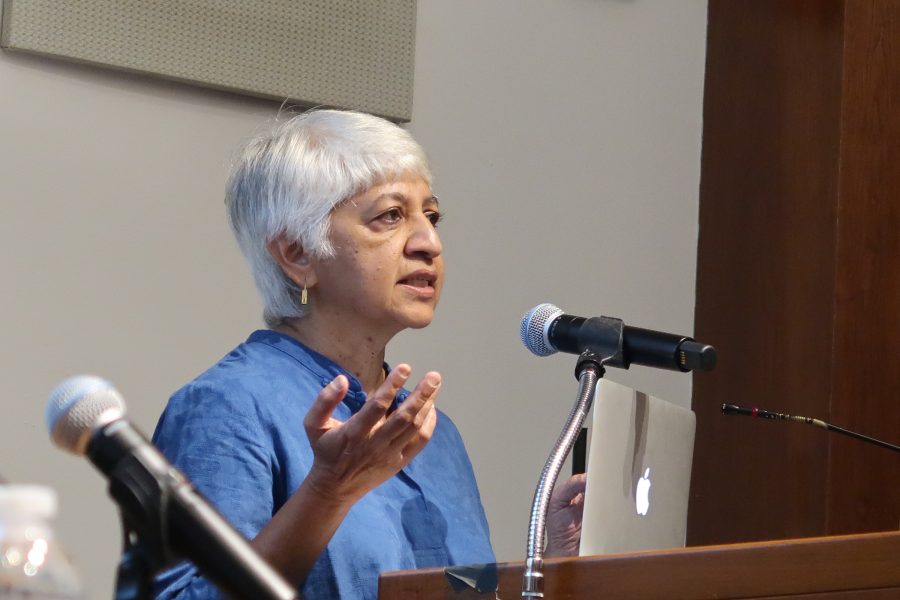TW: This article mentions sexual assault.
Though the most recognized voices of the #MeToo movement have been those of women in the United States, women across the world have been fighting against sexual abuse and for equal rights. Activists at a panel on Tuesday talked about how the movement has looked around the globe.
The event’s aim, according to moderators Montclair State University English Professor Fawzia Afzal-Khan and NYU Professor and Director of Gender and Sexuality Studies Gayatri Gopinath, was to globalize the movement that has been centered around privileged white women of the western world. Panelists sought to answer the question of how the #MeToo movement has expressed itself on a transnational level. A total of five panelists spoke to an audience of about 80 attendees at the Silver Center.
First to speak was Zineb Belmkaddem, an activist from Morocco. After a young girl was kidnapped, raped and tortured for two months, Belmkaddem started the #Masaktach movement to hold the girl’s rapists accountable. The 12 men accused are awaiting criminal trial for rape, assault and battery.
“We all came out in support in every way that we could and that’s how the #Masaktach movement started,” Belmkaddem said.
Tejaswini Niranjana, a cultural theorist from India currently residing in Hong Kong, spoke about the growth of the #MeToo movement in both of the places she has called home. Niranjana said protests in Hong Kong against a proposed extradition law have been catalysts for protests against sexual violence in the city.
The founder of #MosqueMeToo started memorably with her catchphrase, “Hello, my name is Mona Eltahawy and this is my declaration of faith: f-ck the patriarchy.” She then told the story of her sexual assault while on hajj in Mecca.
“This is obviously about an abuse of power,” Eltahaway said. “Because these men who do this to women and girls and children do it knowing that the sanctity of the place where they assault us gives them another level of protection.”
Two panelists from Pakistan, poet and feminist activist Kyla Pasha and queer feminist organizer Sarah Suhail, also spoke at the event. Both had been very involved with feminist and LGBTQ movements in Pakistan over the last several years as members of the Feminist Collective Lahore.
“We want to make it systematic so that, basically, the feminist movement can take issues of queerness and class seriously,” Suhai said of further organizing the #MeToo movement in Pakistan.
First-year Nadera Herbert-Bayand said she learned a lot from the event.
“In my perspective, [the movement] has been something that is very western-central,” Herbert-Bayand said. “We don’t really get to hear about how it affects people in different countries.”
Suhail ended the event by saying she is hopeful that the efforts of activists will be successful.
“However great the oppression, it creates an even more powerful resistance,” Suhail said.
Email Jana Warshawsky at [email protected].


























































































































































